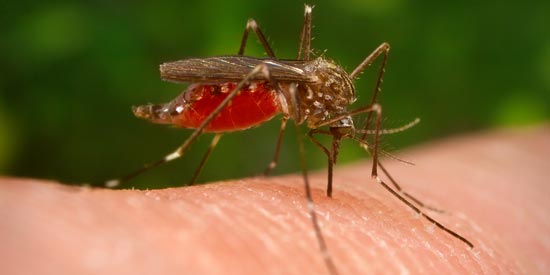
Local
Grouse hunters involvement in West Nile virus study
The Minnesota Department of Natural Resources (DNR) is asking hunters to voluntarily submit samples to examine exposure and active infections of West Nile virus (WNV) in ruffed grouse. The project is run by the Minnesota DNR and partially funded by the Ruffed Grouse Society and the Game and Fish Fund.
Scientists want to learn more about the exposure and infection of WNV the impact it has on the production of young ruffed grouse as not much is known about it. Hunters can collect sample kits from specified DNR headquarters in Bemidji and Grand Rapids.
WNV is a zoonotic disease spread by mosquitoes. The virus circulates between mosquitoes and birds. Birds are primary carriers of WNV and vary in vulnerability to the virus. Some birds such as blue jays and crows suffer high mortality to the virus while others appear more resistant. Affected birds can be thin and display signs of weakness and imbalance. Humans and horses act as dead end hosts of the virus. Although they may be asymptomatic and never develop clinical signs, the virus does pose a serious risk. 39 states, including Minnesota, reported a total of 307 equine cases of WNV in 2017.
Although vaccination is available for equine species leading to a declining number of cases, circulation of the virus in birds species contributes to its continued persistence. On July 27th, Minnesota reported its first case of equine WNV for 2018 in a 3 year old miniature show horse recognizing the importance of better understanding of the infection and exposure different avian reservoir hosts.
MN Department of Natural Resources
MN Board of Animal Health
MPR
National
Salmonella associated with raw chicken
On Friday, June 24th, Food Safety and Inspection Services (FSIS) and the largest kosher poultry producer in the United States, Empire Kosher Poultry Inc., released a public health announcement concerning Salmonella illnesses possibly associated with raw chicken products. There is concern that consumers may still have frozen contaminated products and FSIS urges consumers to appropriately handle and cook these raw chicken products.
The concern is regarding raw chicken and chicken products that were produced and sold between September 2017 to June 2018.
An epidemiological investigation identified multiple case-patients in the northeastern and mid-Atlantic United States with a history of reported consumption of Empire Kosher brand chicken products. Approximately half the reported cases were hospitalized due to illness between September 2017 and June 2018.
Salmonellosis causes abdominal pain, diarrhea, and fever 12 to 72 hours after consumption of contaminated products. Illness commonly lasts up to one week and treatment is not required. However it can cause severe illness requiring hospitalization in older people, children or infants, and immunocompromised people.
International
Sniffing out Ivory
A new groundbreaking technique employing dogs to sniff out ivory is being trialed in Kenya’s Mombasa port. Mombasa port is one of Africa’s most active hubs in the illegal trafficking of ivory.
The program is co-funded by the World Wildlife Fund (WWF) global conservation group, the wildlife trade monitoring network Traffic and Kenya Wildlife Service (KWS).
According to the WWF, an astonishing 20,000 to 30,000 elephants are killed each year and between 2009 and 2014 over 18,000kg of ivory were seized from the port of Mombasa. The use of dogs will enable law enforcement to increase their search to about 2,000 containers a day.
The method uses filters (Remote Air Sampling for Canine Olfaction) that suck air out of the containers. The filters are then presented to the dogs, who are trained to sit if they smell any ivory products. The dogs are also trained to detect other illegal substances such as illicit animals, plants or timber products. In the past six months, the use of dogs has already led to 26 seizures.
Questions, comments, feedback about today's Weekly Update? Please email Dr. Gus Brihn
Receive the Weekly Update right in your inbox on Tuesdays and Thursdays. Subscribe now at z.umn.edu/WeeklyUpdateSubscribe
